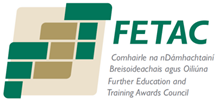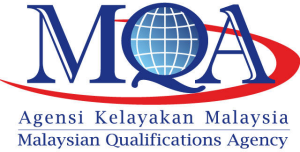Further education in the United Kingdom and Ireland is education in addition to that received at secondary school, that is distinct from the higher education (HE) offered in universities and other academic institutions. It may be at any level in compulsory secondary education, from entry to higher level qualifications such as awards, certificates, diplomas and other vocational, competency-based qualifications through awarding organisations including City and Guilds, Edexcel (BTEC) and OCR. FE colleges may also offer HE qualifications such as HNC, HND, Foundation Degree or PGCE. The colleges are also a large provider of apprenticeships, where most of the training takes place in the apprentices' workplace with some day release into college.

The Qualifications and Curriculum Development Agency (QCDA) was a charity, and an executive non-departmental public body (NDPB) of the Department for Education. In England and Northern Ireland, the QCDA maintained and developed the National Curriculum and associated assessments, tests and examinations, advising the minister formerly known as the Secretary of State for Education on these matters.

The Higher Education and Training Awards Council (HETAC), the legal successor to the National Council for Educational Awards (NCEA), granted higher education awards in Ireland beyond the university system from 2001 to 2012. HETAC was created in 2001, subject to the policies of the National Qualifications Authority of Ireland, and, specifically, granted qualifications at many Institutes of Technology and other colleges. HETAC was dissolved and its functions were passed to Quality and Qualifications Ireland (QQI) on 6 November 2012.

The Further Education and Training Awards Council or FETAC is a former statutory awarding body for further education in Ireland; it was established on June 11, 2001 under the Qualifications Act 1999. FETAC was dissolved and its functions were passed to Quality and Qualifications Ireland (QQI) on November 6, 2012.
A postgraduate diploma is a postgraduate qualification awarded after a university degree, which voids the original degree awarded to the recipient. It can be contrasted with a graduate diploma. Countries that award postgraduate diplomas include but are not limited to Bangladesh, Barbados, Belgium, Brazil, Canada, Chile, Colombia, Germany, Hong Kong, Jamaica, Spain, South Africa, India, Ireland, the Netherlands, New Zealand, Nigeria, Republic of Panama the Philippines, Portugal, Russia, Pakistan, Poland, Saudi Arabia, Singapore, Sweden, the United Kingdom, Sri Lanka and Trinidad and Tobago. Level of education and recognition differ per issuing country.
Third-level education in the Republic of Ireland includes all education after second-level, encompassing higher education in universities and colleges and further education on Post Leaving Certificate (PLC) and other courses. The degree-awarding authorities approved by the Government of Ireland, which can grant awards at all academic levels, are University of Dublin, National University of Ireland, Royal College of Surgeons in Ireland, Dublin City University, Dublin Institute of Technology, Higher Education and Training Awards Council, St. Patrick's College, Maynooth, and University of Limerick. The King's Inns of Dublin has a limited role in education specialising in the preparation of candidates for the degree of barrister-at-law to practice as barristers. Medical schools in Ireland also have particular regulation. There were seven establishments of higher education within the Republic of Ireland ranked among the top 500 universities worldwide by the Times Higher Education Supplement in 2008.
The Higher Certificate is a third level education award at level 6 on the National Framework of Qualifications in the Republic of Ireland.The Higher Certificate is awarded by various Institutes of Technology. A Higher Certificate academic programme is two years of full-time study. Students can complete an additional (add-on) year to obtain the Ordinary Bachelors degree, and may then complete a further add-on year to obtain the Honours Bachelors degree. The Higher Certificate is, in effect, two years of a four year undergraduate degree. The Higher Certificate should not be confused with the Advanced Certificate which is a two year Post-Leaving Certificate (PLC) program of further education, typically delivered by community colleges, and is also awarded at level 6 on the National Framework of Qualifications and can be used to gain entry to a third level undergraduate program.
The Hong Kong Council for Accreditation of Academic and Vocational Qualifications, is a statutory body established under the HKCAAVQ Ordinance which came into effect on 1 October 2007.

Blackrock Further Education Institute is a college of further education in Dublin which was established in 1982. In 2015 it moved to Blackrock in a redeveloped Town Hall, Technical College and Carnegie Library. It provides both higher educational qualifications as well as technical/vocational education and training in areas including Beauty Therapy, Creative Multimedia, Marketing, Auctioneering and Estate Agency Practice, Accountancy and Design. Blackrock Further Education Institute is located in Blackrock, 7 kilometres from Dublin City Centre.

The South African Qualifications Authority (SAQA) is a statutory body, regulated in terms of the National Qualifications Framework Act No. 67 of 2008. It is made up of 29 members appointed by the Minister of Education in consultation with the Minister of Labour. SAQA is mandated by legislation to oversee the development and implementation of the National Qualifications Framework (NQF).
The Higher Education Colleges Association (HECA) is the representative body of independent third level colleges in Ireland, formed in 1991 to represent the interests of its member colleges and their students.
The Malaysian Qualifications Framework or the MQF is a unified system of post secondary qualifications offered on a national basis in Malaysia. It is administered by the Malaysian Qualifications Agency (MQA), a statutory body under the purview of the Ministry of Higher Education (MOHE).

The Malaysian Qualifications Agency or the MQA is a statutory body in Malaysia set up under the Malaysian Qualifications Act 2007 to accredit academic programs provided by educational institutions providing post secondary or higher education and facilitate the accreditation and articulation of qualifications.
Rathmines College is an educational institution in Rathmines, Dublin that offers various Further Education courses in areas such as business, computing, media studies, office administration etc. It has two campuses in Rathmines; in the former Rathmines Town Hall and at 28-9 Leinster Road. It operates under the patronage of the City of Dublin Education & Training Board, known as the City of Dublin Vocational Educational Committee (CDVEC) prior to 2013.

American College, Dublin, a constituent college of Irish American University, is a private not-for-profit liberal arts institution, accredited by the Middle States Commission on Higher Education (MSCHE). Established in 1993 in Dublin Ireland, the institution is located in the center of Dublin on Merrion Square in a number of Georgian era houses, one of which is the childhood home of Oscar Wilde. In addition to its American accreditation with MSCHE, American College Dublin offers programs placed at level-eight and level-nine on the Irish National Framework of Qualifications which are accredited by the Irish body Quality and Qualifications Ireland (QQI) and for which graduating students receive QQI awards.
The Priory Institute, is part of the St. Mary's Dominican Priory on the grounds of the old Tallaght Castle, Dublin 24, Ireland and provides, certificate, diploma, and degree programmes in Theology and Philosophy.
Qualifications Frameworks in the European Higher Education Area (QF-EHEA) are frameworks describing the higher education qualifications of countries participating in the Bologna Process. National Qualifications Frameworks (NQFs) provide a mapping between higher education qualifications and an overarching framework, allowing the cross-comparison of qualifications from different countries.
Shaw Academy is a privately owned online education organisation based in Dublin, Ireland. Founded in 2013, Shaw Academy provides online courses, which are video recorded. The educational spectrum involves subjects like photography, financial trading, nutrition, web development and digital marketing. Shaw Academy makes use of a chat bot and chats with peers to support the education. The prerecorded video lessons are delivered at scheduled times giving the impression that they are live.









